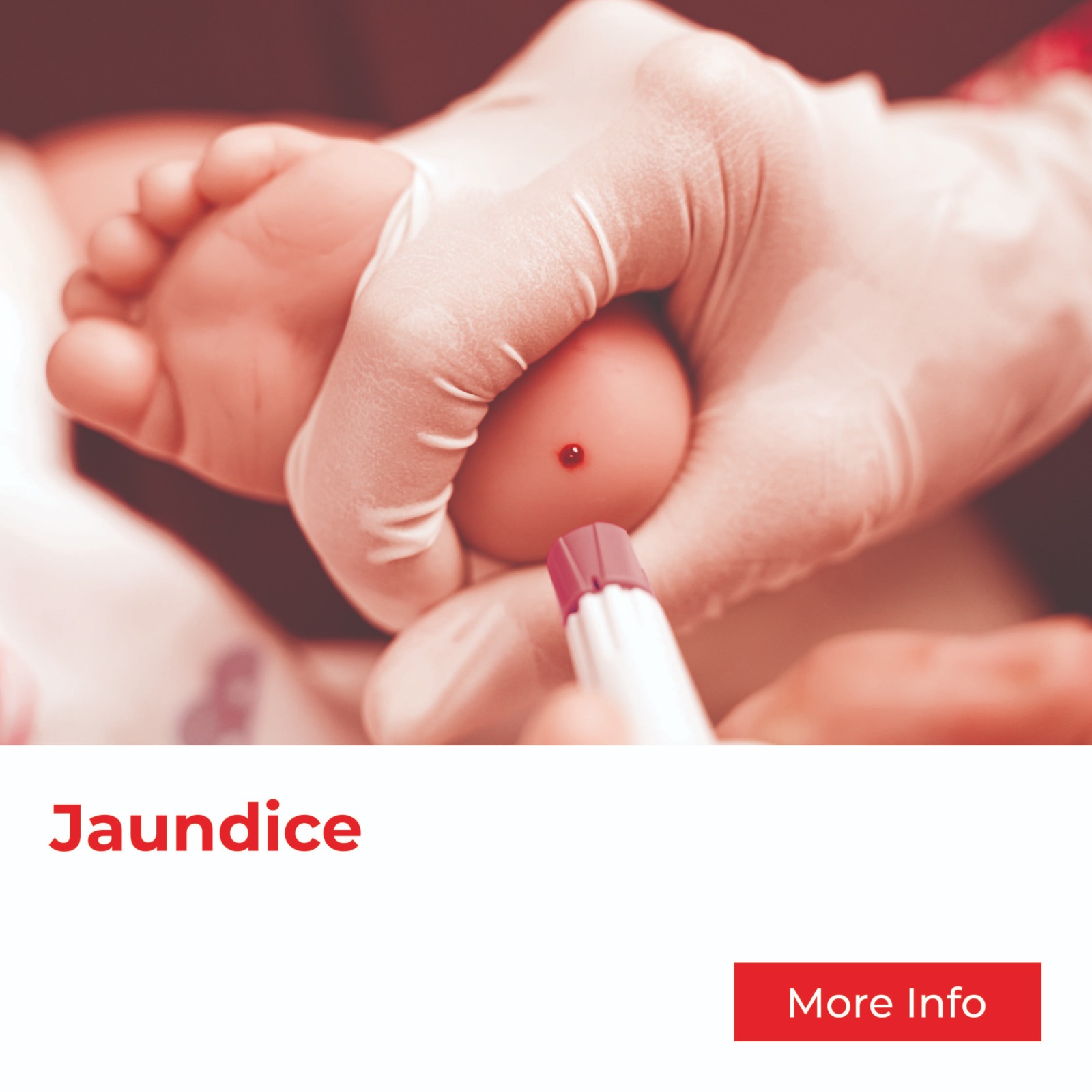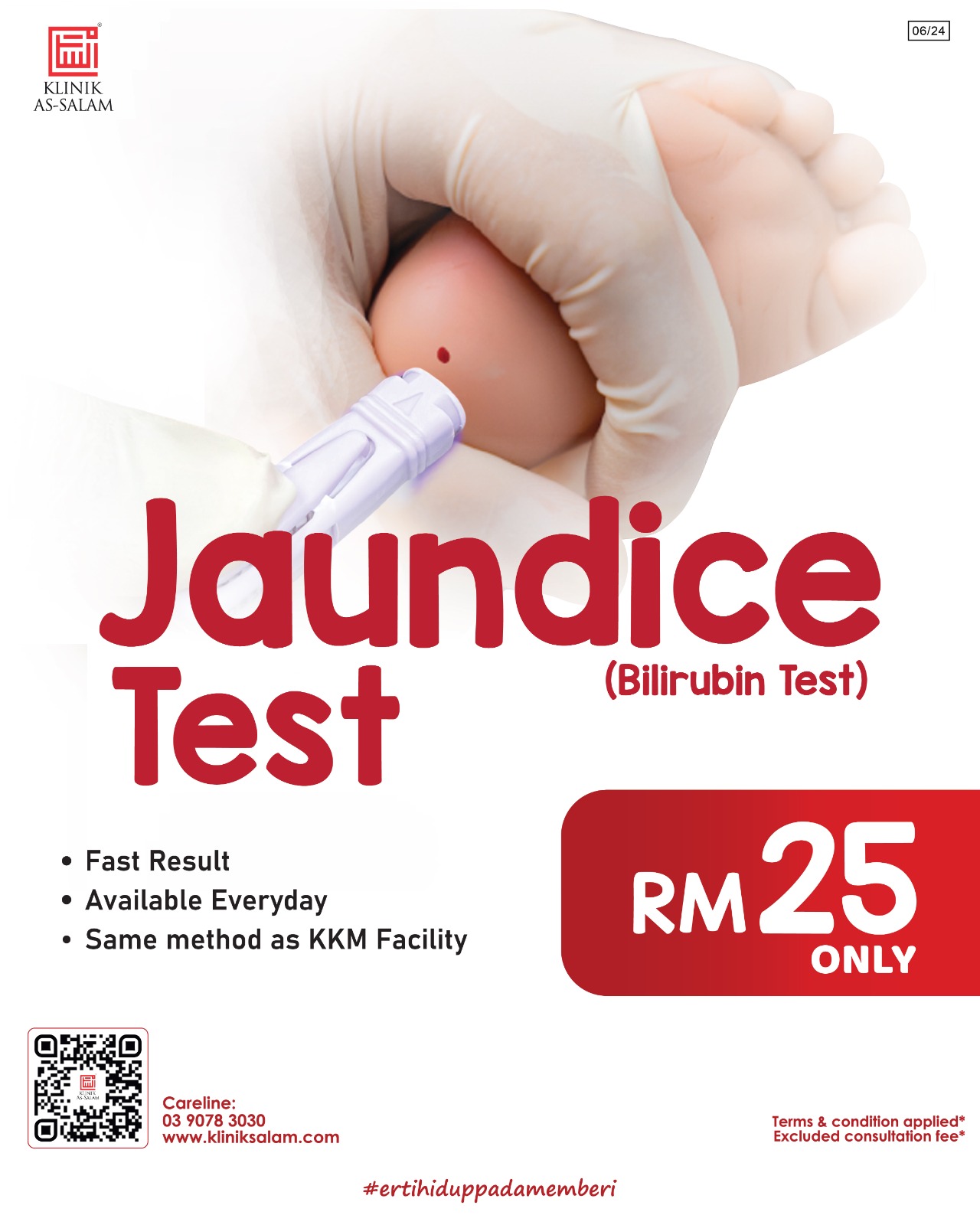
Infant Jaundice Test & Check Up | Bilirubin
What is Jaundice? – Jaundice is a common condition in newborns where their skin and eyes appear yellow. This is caused by high levels of bilirubin, a yellow substance produced when red blood cells break down. Newborns may have higher bilirubin because their liver is stilldeveloping.
Why Jaundice Happens in Newborn?
✔ Physiological Jaundice
– Appears 2–3 days after birth. Usually harmless and fades on its own.
✔ Breast Milk Jaundice
– Occurs in babies who are exclusively breastfed. Bilirubin may rise due to slower bowel movement.
✔ Pathological Jaundice
– Occurs within the first 24 hours or lasts longer than 2 weeks. It may be linked to blood disorders, infections, or G6PD deficiency.
Sign of Jaundice in Newborn
The most obvious sign of jaundice is a yellowish discoloration of the skin. However, this change may be difficult to detect if the baby has a darker skin tone. This discoloration is usually more noticeable on the head and face. You can also identify jaundice by gently pressing your baby’s skin with your finger; if the area you press looks yellowish, this may be an indication of jaundice. Here are some sign that generally happens,
Yellow skin (especially face and chest)
Yellowing of the eyes
Baby appears unusually sleepy or feeds poorly
Pale stools or dark urine
What Causes Jaundice?
Several conditions can increase the likelihood of a baby developing jaundice, including:
Ancestry/Ethnicity: Studies have shown that babies of East Asian or Mediterranean descent are at higher risk of developing physiological jaundice.
Blood type differences between mother and baby: If the mother and baby’s blood are not compatible, antibodies from the mother can enter the baby’s bloodstream through the placenta, causing faster breakdown of red blood cells and thus increasing bilirubin levels.
Birth injuries such as bruises: Babies who sustain bruises during birth are at risk of having higher bilirubin levels due to the breakdown of red blood cells from the bruised area.
Premature birth: Babies born before 38 weeks may not have a mature liver to process bilirubin effectively. In addition, premature babies tend to breastfeed less, leading to fewer bowel movements and reduced elimination of bilirubin through stool.
Breastfeeding (especially exclusive but inadequate): If a baby is only breastfed but not getting enough milk, it can lead to dehydration or low calorie intake, which contributes to breastfeeding jaundice. Therefore, proper and adequate breastfeeding is very important to reduce this risk.
Types of Jaundice Treatment: Depends on the level of bilirubin in the baby’s blood.
Here are some of the treatments that we provide for Jaundice,
Phototherapy – Baby placed under special lights to reduce bilirubin.
Home Monitoring – For mild cases, more frequent breastfeeding is advised.
Exchange Transfusion – In serious cases, baby’s blood is replaced.
What Can Parents Do?
Here are some of the things that parents should observe or take action on,
Watch for yellowing in baby’s skin and eyes.
Ensure baby feeds regularly.
Seek medical advice early if signs worsen.
Avoid traditional remedies without medical guidance.
- Take our Jaundice Test/Bilirubin Test to ensure if is Jaundice – only for RM25!
Book an Appointment Today with Professional Medical Team!
Give your baby the healthiest start in life by ensuring early detection and proper care for jaundice and other newborn health concerns. At Klinik As-Salam, we’re here to provide reliable, fast, and professional screening services for your little one.
Contact us at 03-9078-3030 or 012-414 0969 for more details!
